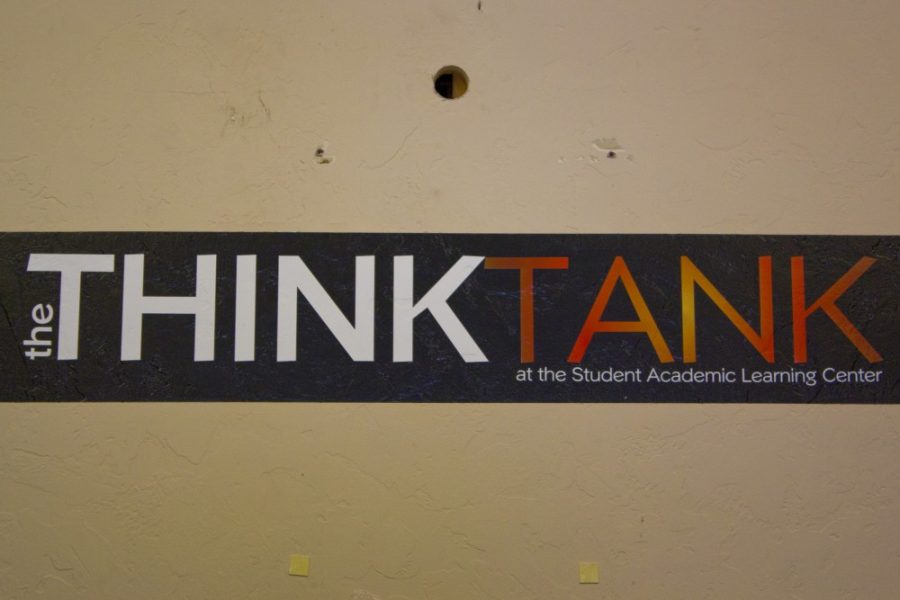With three locations on campus, the Think Tank offers students an array of help, be it with an English 101 essay, a cover letter for a job application or math problems.
Tressa Points, a sophomore studying pre-pharmacy and mathematics, said she enjoys going to the Think Tank with a group of classmates, adding that they help keep her focused. Points, as well as molecular and cellular biology student Bridgette Peña, are taking a summer session of Calculus II which condenses a usual semester-long course into five weeks.
“If I do have a question it’s nice to have someone there who can try to explain it to me and who can help me better understand,” Points said.
The Think Tank provides free drop-in tutoring in math, science, Spanish and writing. The service also provides weekly reviews for a select number of courses and group study sessions facilitated by UA students for free. Some fee-based services provided by Think Tank are one-on-one hour-long tutoring sessions, college survival sessions, exam preps and graduate test prep courses.
Since it opened in the fall of 2009, the Think Tank has had over 100,000 visits, 42,424 of which occurred last year, according to Victor Mercado, assistant director of the Think Tank. While most students visit the Think Tank just once, others become frequent visitors, averaging between 60 and 70 visits per year.
In order to be a tutor, the student must have already taken the course they are tutoring in, have gotten an “A” or “B” in that course and have extensive knowledge of that subject.
“They have very different approaches to tutoring,” Mercado said. “Sometimes we let the students drive the session, other times we’ll let the tutor be more involved.”
Points, who took Calculus II last semester and is having to re-take it this summer, said she spent a lot of time in the Think Tank last semester studying math. She explained that some tutors have to teach math a specific way in order to understand what the student is trying to do, while others ask the student to explain the steps and are more flexible with teaching techniques, she added.
“It really does depend on the tutor, whether it’s helpful or not,” Points said.
Online tutoring is also available for math courses up to Calculus II and for writing.
“I don’t think that students should take it as a challenge to their own skills but more as an opportunity to grow and learn something new,” Mercado said.
Other tutoring and studying assistance centers include the SALT Center, CATS Academic services for student-athletes and the Writing Skills Improvement Program.
The SALT Center helps students with learning and attention challenges by providing individualized learning plans, study sessions, learning strategies instruction, psychological services, assistive technologies and leadership and social programs. They also have writing, math and science skill development seminars.
CATS provides student-athletes with advising, tutoring, course selection and individualized study planning, according to its website.
The Writing Skills Improvement Program provides free writing tutoring sessions where students enroll and are matched with a tutor who they work with throughout the semester.
The program also has drop-in tutoring for those who prefer periodic help rather than regularly scheduled sessions all semester. An appointment is necessary for drop-in tutoring, and students have the option of going to the main program location or one of the cultural student centers.









